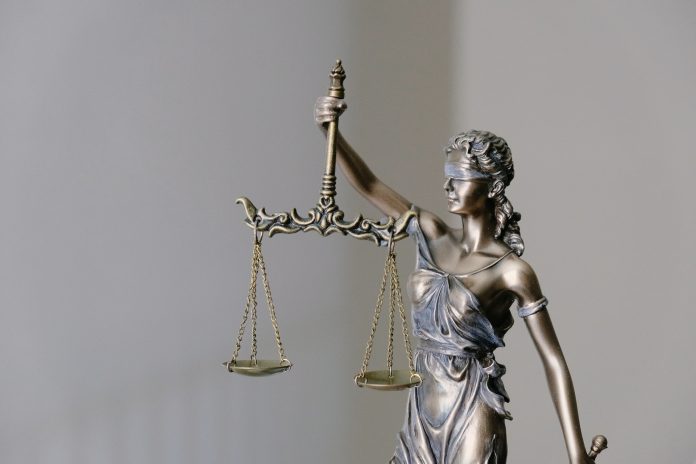In criminal defense, the strategic deployment of expert witnesses pivots legal arguments; it presents nuanced perspectives and offers insights beyond a standard courtroom dialogue. Criminal lawyers lean heavily on professionals’ expertise from diverse fields to fortify their defense strategies–particularly when grappling with complexities like forensic evidence, mental health evaluations and technical matters.
Forensic Evidence and Expert Testimony
In the realm of forensic evidence, criminal lawyers primarily rely on expert witnesses: these specialists–from DNA analysts to experts in ballistics and crime scene reconstruction–hold specialized knowledge that is paramount for deciphering complex data. Particularly when cases hinge significantly upon such scientific proof; it becomes necessary not only to challenge methodologies but also question result reliability; moreover, introducing alternative interpretations capable of casting reasonable doubt on the prosecution’s narrative emerges as a crucial strategy—a strategy often achieved through consultation with additional forensic professionals.
For instance, forensic pathologists can contest autopsy findings; they may illuminate alternative causes of death that could potentially exculpate the accused. Likewise, experts in digital forensics have the ability to scrutinize electronic evidence: they can question its authenticity or reveal possible manipulation – a particularly pertinent aspect in cases related to cybercrime or computer offenses.
Mental Health Evaluations
When mental health becomes a factor, criminal lawyers frequently engage expert witnesses–typically forensic psychologists or psychiatrists: these professionals offer comprehensive evaluations. Their insights into the defendant’s mental state at the time of alleged offense; assessments regarding their competency to stand trial; and investigations into potential mitigating factors that could influence sentencing are invaluable contributions.
Criminal lawyers seek to humanize the defendant and present a more nuanced picture that transcends the alleged criminal act through expert testimony on mental health issues. They delve into factors such as psychological disorders, trauma or diminished capacity; this strategy aims not only to garner empathy from the jury but also in some cases – seek alternative dispositions: specifically diversion towards mental health treatment programs instead of incarceration.
Technical Expertise in Specialized Cases
In cases grappling with technical complexities, criminal lawyers frequently solicit the aid of expert witnesses who boast specialized knowledge; this spectrum can span from financial experts in white-collar crime instances–to engineers when dealing with technical accidents or malfunctions. These seasoned professionals not only provide a crucial level of technical proficiency: they are integral to elucidating intricate details for court, jury – even their own legal counsel.
A forensic accountant may be called upon in a complex financial fraud case to dissect financial transactions and provide insights into potential discrepancies or inconsistencies. Similarly, a cybersecurity expert can clarify intricate details in cases involving technological crimes such as hacking techniques, data breaches, and digital evidence authenticity.
Challenges and Strategies in Leveraging Expert Witnesses
Expert witnesses, indeed valuable assets for bolstering legal arguments, present a unique set of challenges. A criminal lawyer is capable of adeptly traversing the complexities involved in presenting technical information; this navigation is crucial to ensure accessibility not only to non-expert audiences – specifically the judge and jury – but also maintain an effective balance between necessary technical detail and clarity.
Indeed, the courtroom often becomes a battleground for expert witness credibility. The prosecution might question the defense’s expert qualifications or impartiality with an aim to destabilize their testimony. In order to guarantee that their testimony stands up under scrutiny and withstands rigorous cross-examination, criminal lawyers must meticulously vet and prepare these experts.
Legal Strategies in Evidence and Procedural Errors
Lawyers in the realm of criminal defense intensely focus on identifying and challenging legal and procedural errors: their concentration extends to scrutinizing evidence admissibility; ensuring adherence to constitutional rights–particularly due process. Often, expert legal consultants – including former judges, as well as scholars of law – are solicited for insight into these complex issues. For instance: in cases involving unlawful evidence acquisition, they pivotally ensure that the defense strategy robustly addresses any Fourth Amendment violations related to unreasonable searches and seizures; their role is equally critical in assessing the validity of defendant statements. With expertise on Fifth Amendment implications and propriety of procedures such as Miranda warnings – aiming to identify any coercive tactics which could render confessions inadmissible – they play a crucial part indeed.
Moreover, criminal lawyers deploy their legal expertise to tackle procedural errors that could jeopardize the trial’s fairness; this involves contesting inappropriate jury instructions, flaws in the indictment process–or even mishandling of evidence. These experts delve into a realm filled with legal precedents and procedural norms: they actively contribute towards formulating arguments for mistrials, appeals – or any other potentially efficacious remedy. Not only does this approach question a case’s factual aspects, but it also underscores the integrity of the legal process: thus reinforcing the principle that rests with—indeed, affirming—the prosecution bears the burden of proof. Consequently—a fair and just trial is not merely an option; rather, it stands as an essential right for every defendant involved.
Conclusion
By harnessing the expertise of expert witnesses, criminal lawyers elevate defense strategies to an art form: they bring a multidimensional approach to legal arguments. These specialists contribute essential perspectives that can sway case outcomes – challenging forensic evidence; presenting nuanced mental health evaluations; and navigating technical complexities. The collaboration between legal practitioners and these experts–a delicate dance within courtrooms–serves as both testament and symbol. It testifies not only their dedication for justice but also truth-seeking amidst labyrinthine complexities inherent in our judicial system.


I like this site very much, Its a real nice
office to read and get information.Raise blog range